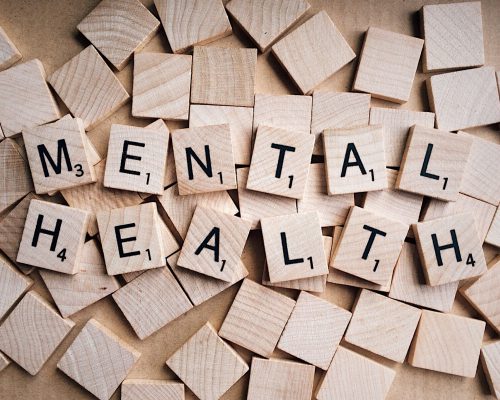Your Mental Health
Mental health is a very important part of our lives and indeed there are a lot of services out there to help people in need but many people will say that there aren’t enough. But there are a few things that we can do personally to help with our mental health.
Many GPs will tell you that there are 4 areas that will help you
- increasing the amount of exercise you do
- Eating well
- reducing alcohol intake
- getting a regular good night’s sleep
We all know what it’s like in this modern age. Running and racing here and there (always in the car and getting stuck in traffic) getting the kids to school, getting to work, bringing the kids to after school activities, making dinners, household chores and basically getting through the day in modern Ireland. Getting through the day stress free is nearly impossible but we have to try to address this stress.

Exercise
Being active helps protect both your physical and mental health. With regular exercise you will find that you sleep, relax and feel better. Exercise also helps reduce stress and boosts your energy levels. It is through physical activity that you can cause chemical changes in the brain. These changes help to improve your mood (if you are in a bad one) and even give you that lift that you may have been looking for.

Eating Well
Did you know that when it comes to mental health, what you eat can make a big difference? Researchers have shown that a diet rich in foods like fruit, vegetables and seeds helps protect your mental health. So in essence healthier food choices will improve your physical and mental health and well being.
What we need to be doing is
- Eating three meals a day
- Plan ahead
- Stop skipping meals
- Eat more fruit and veg
- Stay hydrated
- Cut out fizzy drinks
If you want to see what you actually eat and drink in a week then keep a diary. When you look back on it I think you will be amazed. It will also help you work out what foods don’t actually agree with you.

Reducing Alcohol Intake
I’ve heard it so many times before “I have a drink to relax” and there’s nothing wrong with that but did you know that a lot of people find their mood improves when they cut down or stop drinking. This may come as a surprise, as it’s common to feel that alcohol gives you a boost or relief.
We often tend to fall into the trap that alcohol makes you “feel good” but you have to remember that alcohol is a depressant. Did you ever experience that “low” feeling the next day after a few drinks? Well that’s the point and case. We all know that alcohol can have a negative effect on our mental health in the longer term too because it causes problems like depression and anxiety and makes existing problems worse.
Check out this Self Assessment tool on your drinking habits
These are often the times when we start drinking
- After work
- After putting the kids to bed
- On nights out with friends
- At home alone
- Watching sports
- At big celebrations like weddings and family events
- After arguments or at stressful times
- When I’m feeling down or lonely
- With a meal
Here are a few tips
- Drink low-alcohol alternatives
- Suggest alcohol-free activities with friends
- Learn some stress-management techniques, like controlled breathing or mindfulness
- Change your route to avoid pubs or off-licenses
And if you feel peer pressure then here are a few tips that you can tell people why you’re not having a drink
- “I’m on a diet.”
- “I’m on medication.”
- “I’m off it at the moment.”
- “I’m cutting down.”
- “I have to be up early in the morning.”

A good nights sleep
Sleep is so important for us. It’s when we recharge our batteries but the best amount is 8 hours sleep a night but sometimes it’s not always possible to get as much sleep as you would like.
Remember if you don’t sleep well, you won’t feel as alert as you should. You will feel easily agitated and your actions may seem slow. Stress and anxiety can cause problems with your sleep and this is why it’s important to try to deal with these before we go to sleep.
Difficulty sleeping is often called insomnia. The odd night without sleep won’t cause you any damage. But insomnia can leave you tired and moody. You might also be unable to focus on tasks.
There are a few things you can do to help you sleep better
- keeping active
- avoiding stimulants
- keeping to a routine
- avoiding naps
- relaxing your body and mind
It’s important to have a routine. Try to go to bed at the same time every night and get up at the same time each morning because this is what your body clock is looking for. Keep away from binge watching box sets of your favourite TV programs from your bed but a bit of light reading can help you relax.
Here you will find a few ideas on how to relax before you go asleep
Always be aware that being tired makes it harder to cope. Over time, this can affect your self-esteem and mental health and lack of sleep may also impact your mood and energy level. This could lead to negative thoughts.
For more information on your mental health and tips on how to stay active you should visit
Your Mental Health






